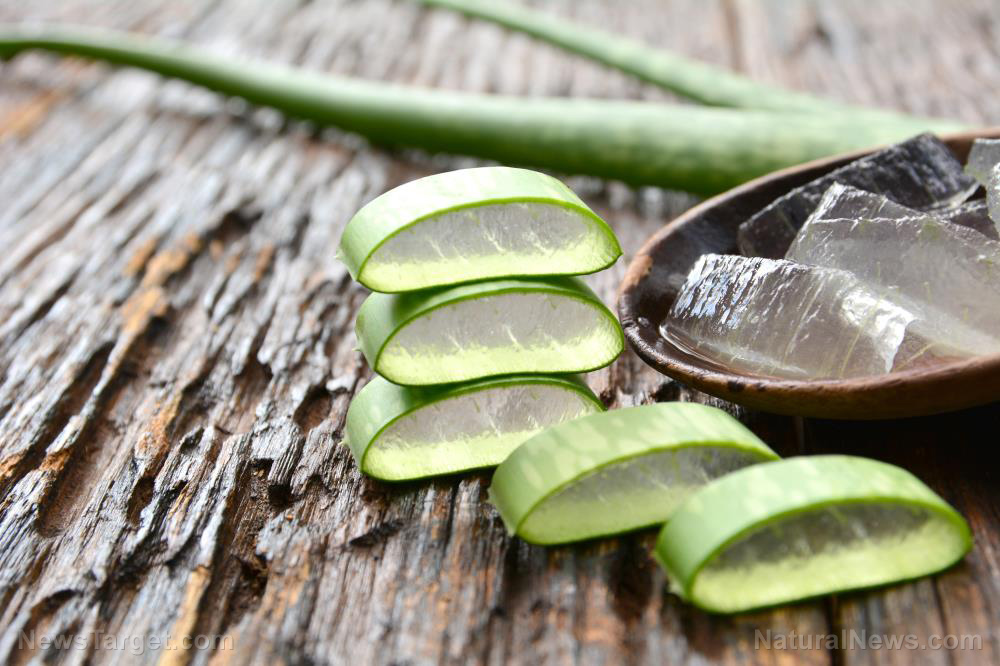
Advertisement
Throughout America, many worried shoppers are stocking up on essential items to prepare for possible supply shortages and extended community lockdown because of the coronavirus (COVID-19) pandemic. Aside from food, buyers are also looking for important items like cleaning supplies, rubbing alcohol, soap and hand sanitizer.
If you’re running low on hand sanitizer, there are items you can use to make a DIY and non-toxic hand sanitizer to keep your hands clean during these worrying times.
Use natural disinfectants to fight COVID-19, bacteria and other viruses
Ho Ching, the Singapore Prime Minister’s wife, has been sharing some of her findings on COVID-19 on social media.
According to an article on the MSN website, Ho has found that using mild, natural disinfectants such as lemon, lime or vinegar are also effective at killing viruses and bacteria.
Coronaviruses are usually fragile. But while they are easy to destroy, you must first destroy their only defense: their outer membrane. Once this outer membrane is dealt with, the virus can no longer spread.
Mildly acidic ingredients, like seven to eight percent citrus acid in lemon or lime juice, are effective against some kinds of bacteria and viruses. If you don’t have citrus fruits, vinegar can also work for sanitation and disinfecting.
Studies have shown that natural ingredients like lemon, lime and vinegar can be used as non-toxic disinfectants. In one study, researchers reported that vinegar was just as effective as common commercial disinfectants when it came to eliminating bacteria.
A separate study has also revealed that vinegar can be used to fight the flu virus.
Meanwhile, findings from a third study suggested that vinegar can kill off Mycobacterium tuberculosis – the bacterium that causes tuberculosis – which is extremely hard to kill. The researchers who conducted the study posited that if vinegar can kill M. tuberculosis, it can also help eliminate other types of bacteria.
Maintain proper hygiene with this DIY hand sanitizer recipe
Hand washing is one of the best defenses against COVID-19 and other infectious diseases. But if you don’t have access to soap and running water, you can follow the instructions for this DIY non-toxic hand sanitizer.
Compared to store-bought hand sanitizers, this homemade version contains natural ingredients and is free from any harmful chemicals.
Tools:
- Clean spray bottle
Ingredients:
- Apple cider vinegar (or other types of vinegar, except sweet vinegar)
- Aloe vera gel
- Essential oils (optional – use lavender, lemon or peppermint oil to mask the smell of vinegar)
Steps:
- Combine the aloe vera and apple cider vinegar using a 2:1 ratio, or two parts aloe and one part vinegar.
- Mix thoroughly until combined.
- Store the mixture in a clean spray bottle.
This DIY non-toxic hand sanitizer can also be used to sanitize frequently touched surfaces and children’s toys.
Disinfect your home to prevent the spread of viruses
Health experts around the world keep reminding the public about the importance of proper hand washing, but what about disinfecting your home?
Because of enforced lockdowns, more people are spending time at home. Therefore, you should also be more vigilant about disinfecting various rooms in your house.
Cleaning your house can help prevent the spread of coronavirus and other infectious diseases. If no one in your household is showing symptoms or has been diagnosed with the disease, the virus is less likely to be living on a surface around your house.
This doesn’t mean the risk is non-existent, particularly if a household member has to leave the house for work or to buy supplies. Regularly clean surfaces that you touch often to reduce the likelihood of the virus transferring from a surface to someone’s hands.
It remains to be seen how long coronavirus can survive outside the body, but a U.S. study revealed that it could last on stainless steel and plastic surfaces for at least three days. The virus can live on cardboard for at least a day.
Human coronaviruses can remain on surfaces for several days, highlighting the importance of establishing a hygiene routine with simple preventative steps to stop the spread of respiratory viruses.
Wipe down high-traffic areas regularly to reduce the spread of viruses in areas that come into contact with different people in a day.
These areas include:
- Car steering wheels
- Entrance doors
- Door handles
- Shared kitchens and bathrooms
- Light switches
- Desks
- Keyboards
- Phones
- Remote controls
Use a disinfectant to clean surfaces in your home, especially surfaces like floors that receive a high amount of traffic every day. If outdoor shoes aren’t removed or you have pets at home, there’s a higher chance that you can bring in bacteria and viruses from the outside.
Simple home measures like hand washing and cleaning your home can help prevent the spread of the coronavirus and other infectious diseases.
Sources include:
Advertisement
Advertisements
















